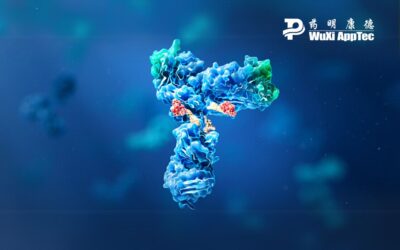Toxicology studies are required for Investigational New Drug (IND) and New Drug Application (NDA) submissions in order to fully define the safety profile of a drug – and maintain the highest level of patient safety. In this short guide, we cover the core battery of toxicology studies required specifically for IND submission.
Drug safety assessment is a broad, complex, and involved process that is essential to both the nonclinical and clinical phases of the development cycle.
Before clinical trials can start, drug developers must define the drug’s safety profile in in-vivo studies – as well as a series of other IND-enabling studies. As clinical trials progress, toxicology studies are needed on a continuous basis. Then, a final set of tests are required for the New Drug Application (NDA).
But ensuring a successful clinical process starts with nonclinical toxicology studies. So, let’s focus on the nonclinical (or preclinical) side of toxicology and what’s required for IND applications.
5 Nonclinical Toxicology Studies Required for IND Submission
The specific safety assessment program depends greatly on the molecule type and clinical plan. However, there are five sets of tests that need to happen at baseline for nonclinical toxicology as per ICH M3(R2) guidance. Here’s a brief overview of each.
#1. Pharmacology
Safety Pharmacology studies define the profile of the molecule by assessing the potential for toxicity across major organ systems, including:
- CNS
- Cardiovascular
- Respiratory
- Gastrointestinal
- Renal
#2. General Toxicology
General toxicology helps drug developers determine the maximum tolerated dose of the drug by studying the potential of the molecule to cause adverse effects after single or repeated exposure.
Typically, general toxicology studies start with a single dose and 14-day, 28-day, and 13-week studies to match or exceed the clinical dosing period.
#3. Reproductive Toxicology
Reproductive toxicology studies assess the reproductive safety of a drug after repeated or chronic exposure.
These studies are conducted in three stages:
- Segment I: Fertility and early-development-to-implantation
- Segment II: Definitive embryo-fetal development
- Segment III: Fetal/neonatal, peri/postnatal development
#4. Toxicokinetic Studies
DMPK studies provide critical information for optimizing the drug properties of molecules early in the development process. These early pharmacokinetic studies evaluate the body’s absorption, distribution, metabolism, and excretion (ADME) of a drug and can help screen the best drug candidate to move forward. Toxicokinetic studies evaluate this same movement under the conditions of the toxicology evaluations.
These studies are coupled with each general toxicology study as well as the reproductive toxicology studies to develop the pharmacokinetic and toxicokinetic profiles under longer dosing conditions to support the clinical plan.
#5. Genotoxic Studies
Genotoxicity studies assess the possibility of gene mutations or chromosomal abnormalities because of the candidate drug.
Planning Your Nonclinical Toxicology Studies
The above five studies are critical to a successful IND application.
However, each program must be designed based on the specific molecule, indication and clinical plan. Because of this variability, planning for nonclinical toxicology studies can be difficult. Here are four tips for success:
- Start as early as possible. For most small molecules, it takes a good year and a half to two years to get all the necessary studies done. This is because they happen in a sequence as opposed to parallel paths.
- Work backwards from your IND filing. The best approach to starting early is by first identifying when you plan to file your IND. From there, you can back into your key testing milestones and start date.
- Schedule a pre-IND meeting with the FDA.For those filing in the U.S., it’s important to work closely with the U.S. Food and Drug Administration (FDA) throughout the process because of how tailored every program has to be. Even if it’s the same molecule type in the same indication, the dosing could be longer or the clinical exposure could be different.
- Work with a preclinical safety assessment testing partner.Toxicology testing is substantial, which is why many drug developers work with a partner. The right partner will stick with you for the entire process and become an important extension of your team.
Putting together a strong IND submission starts with at least these five critical toxicology studies – but planning your entire safety assessment program and tuning it to your precise molecule, indication and other parameters is equally as crucial.
Insufficient planning is one of the most common challenges for drug developers because of how variable toxicology testing can be. The right laboratory testing partner can help you manage timelines, plan the right studies and meet regulatory requirements.
Learn more about WuXi AppTec’s safety assessment services or contact an expert today.
As a global company with operations across Asia, Europe, and North America, WuXi AppTec provides a broad portfolio of R&D and manufacturing services that enable the global pharmaceutical and life sciences industry to advance discoveries and deliver groundbreaking treatments to patients. Through its unique business models, WuXi AppTec’s integrated, end-to-end services include chemistry drug CRDMO (Contract Research, Development and Manufacturing Organization), biology discovery, preclinical testing and clinical research services, helping customers improve the productivity of advancing healthcare products through cost-effective and efficient solutions. WuXi AppTec received an AA ESG rating from MSCI for the fourth consecutive year in 2024 and its open-access platform is enabling around 6,000 customers from over 30 countries to improve the health of those in need – and to realize the vision that “every drug can be made and every disease can be treated.”


